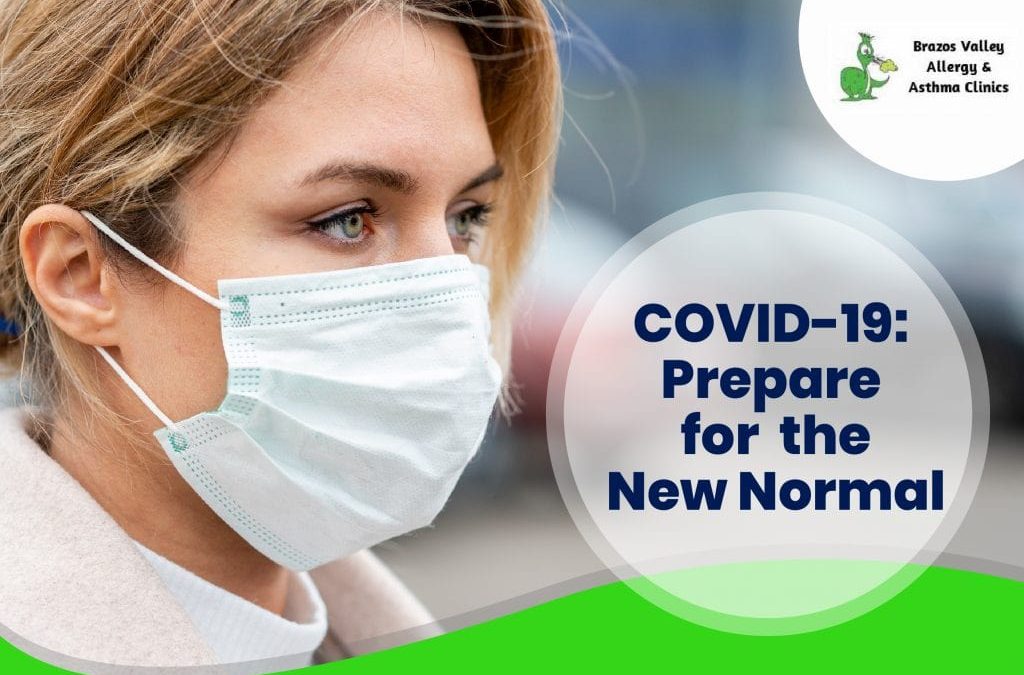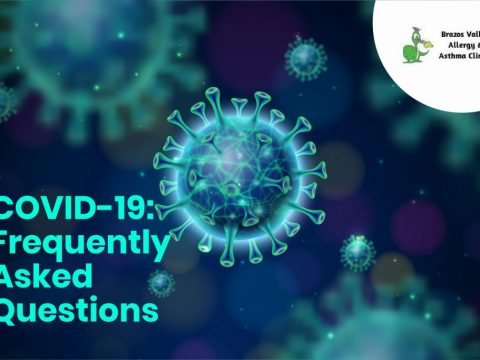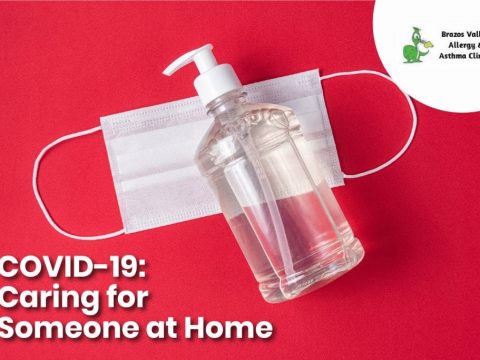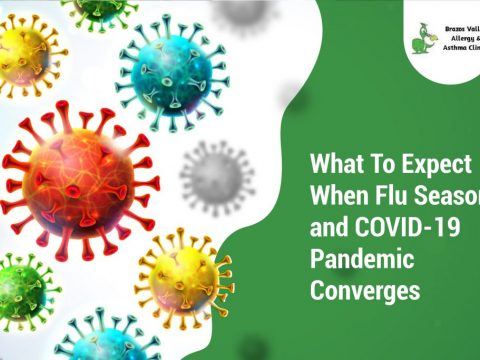- 979-485-9287
- office@bvallergy.com
-
 979-251-7804
979-251-7804
COVID-19: Prepare for the New Normal

Difference Between COVID-19, Flu, and Allergies
April 14, 2020
COVID-19: Frequently Asked Questions
May 8, 2020Overview
In January 2020, the World Health Organization (WHO) declared the outbreak of a novel coronavirus disease, the COVID-19, to be a public health emergency and should be treated as an international concern. The disease has spread to other countries around the world. Months passed by and WHO recognized that the coronavirus disease can be characterized as a pandemic. Since then, the coronavirus or COVID-19 pandemic has created a lot of changes not just in the lives of normal citizens but also in the healthcare industry.
The fight for the coronavirus pandemic still has a long way to go. A full recovery in the healthcare industry from COVID-19 may still be unlikely in this time and the new version of normal for work in any organization is further off than we think. It is safe to say that for the succeeding weeks, there are some things that we should consider as “new normal”.
The Fight Against the Coronavirus
For several weeks now, we have been staying in our homes not just for ourselves but for our families as well. For many people around the country and even around the world, our homes have begun to feel like a cramped closet. Our activities and interactions are very limited, and a part of us misses going out. All of these precautions are in place to prevent the spread of the virus. Until we develop a vaccine against coronavirus, we won’t be able to return to the ways things used to be.
To protect everyone’s health, authorities have highly encouraged people to stay in their homes. For the past few weeks, this has been the new normal in these challenging circumstances. Aside from the home quarantine, what is the new normal in the fight against the coronavirus? Here are some of the things that you will commonly experience in the next few weeks:
-
Hand washing will be an important aspect of combating the disease.
Regular hand washing is one of the best ways to remove germs, avoid getting sick, and prevent spreading the germs to people around you. Hand washing is especially important during this pandemic. Germs can get onto your hands and items you touch throughout the day. When your hands are dirty, it is best to wash them with soap and water to remove whatever germs may be on them. According to the Centers for Disease Control and Prevention, scrubbing your hands for at least 20 seconds is most effective in getting the germs off. If your hands are not visibly dirty and you don’t have any soap and water, using a hand sanitizer with 60% alcohol will do.
-
Extra precautions should be taken when shopping for food and other household essentials.
It is important that you protect yourself while shopping. Since physical distancing is highly encouraged, you should stay at least 6 feet away from other shoppers. Cover your mouth and nose with a mask when you have to go out in public. Disinfect the shopping cart you’ll be using by wiping it with disinfecting wipes. When you are already in the grocery store, avoid touching your eyes, nose, or mouth. If possible, use touchless payment. If you must handle money, a card, or use a keypad, use a hand sanitizer right after paying. After you leave the store, wash your hands when you get home.
-
Online shopping and banking will flourish during these times.
Many of us have been using online banking or been purchasing some of our needs on the Internet. But in the coming weeks, this will be more rampant than you think. The coronavirus pandemic and resulting restrictions on daily life are highlighting the importance of digital platforms. In these challenging times, it would be best if you do online transactions as it limits physical interaction with other people. Buying food and other necessities at home will be best if done online. If you need to buy something, pay online or on the phone when you order. Accept deliveries without in-person contact whenever possible. Ask for deliveries to be left in a safe spot outside your house to limit person-to-person interaction.
Many banks have closed their branches or limiting access. However, banks have digital options that allow their customers to manage a vast majority of their banking needs without leaving their homes. However, if you must visit the back, use the drive-through ATM if one is available. When you are done with your transaction, use a hand sanitizer. Make sure that it has at least 60% alcohol. When you get home, wash your hands with soap and water to get rid of the germs.
-
Telehealth will be highly important in this pandemic.
With the threat of coronavirus all around the world, healthcare practitioners need to find new ways to treat and give consultations to patients. We continue to move in a more technological society and so telehealth will continue to grow and become more and more important in dealing with this pandemic. The restrictions the virus is putting on people has made it challenging to give treatments and consultations to patients. If you are sick, talk to your doctor online, by phone or email. If you often have allergies and would need medication, plan to order and pick up all your prescriptions at the same time. Check with your doctor to see if you can get a larger supply of your medicines so you don’t have to visit the pharmacy as often.
If you must visit in-person, protect yourself and others. Cover your mouth and face on your way to your doctor’s office. Use disinfecting wipes on frequently touched surfaces such as door handles and knobs. When you are inside the clinic, stay at least 6 feet away from other people. Most importantly, if you think you have COVID-19, let the office know and follow their guidance so that you’ll know what to do.
Final Thoughts
The coronavirus pandemic is changing society and human interactions as we know it. The crisis has induced wide-reaching uncertainty. We do not know what to think and it is making us anxious. However, as long as you follow the tips we’ve mentioned above, you will remain strong and healthy in this pandemic.
If you have questions on how to protect yourself against COVID-19 or if you suffer from allergies or asthma, you can visit Brazos Valley Allergy & Asthma Clinics. We provide professional services to help you deal with your allergy and asthma symptoms. Schedule a meeting with us now.




